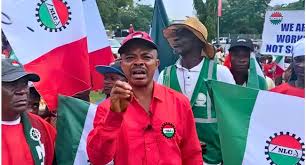
The Federal High Court in Lagos has granted an interim forfeiture order for digital assets worth $222,729.86, linked to the illegal activities of 193 foreign nationals and 599 Nigerians arrested in December 2024.
The 792 individuals were apprehended in a crackdown by the Economic and Financial Crimes Commission (EFCC) for their involvement in cryptocurrency investment fraud and romance scams.
Justice Alexander Owoeye issued the order following an exparte application filed by the EFCC, which was represented by counsel Zeenat Atiku.
The application was made in line with Section 44(2)(b) of the 1999 Constitution and Section 17 of the Advance Fee Fraud Act 2006.
In his ruling, the judge ordered the EFCC to publish the forfeiture in a national newspaper, giving anyone with an interest in the assets 14 days to challenge the order and provide reasons why the assets should not be permanently seized by the Nigerian government.
The EFCC had received intelligence indicating a large-scale fraud operation involving foreign nationals based in Lagos.
The ensuing investigation led to the arrest of the suspects and the seizure of nearly 1,000 routers, SIM cards, computers, and mobile phones. Further inquiries revealed the individuals were part of a syndicate engaged in cryptocurrency investment fraud and dating scams.
The syndicate was reportedly financing its operations through a Nigerian-registered company, Genting International Co. Limited (GICL), which received over N2.26 billion between April and December 2024.
The EFCC traced these funds to a series of cryptocurrency transactions involving vendors Chukwuemeka Okeke and Alhassan Aminu Garba, who admitted receiving $2.39 million in USDT through peer-to-peer trading from the fraudulent syndicate. Blockchain analysis connected these funds to wallet addresses linked to fraudulent platforms, including Conti.vip.
The investigation also uncovered that GICL, a company set up by foreign nationals, was being used to launder the proceeds of the scams. The suspects, operating without valid work permits, were in clear violation of Nigerian laws.
The court has scheduled the next hearing for March 7, 2025, to receive a compliance report from the EFCC.





